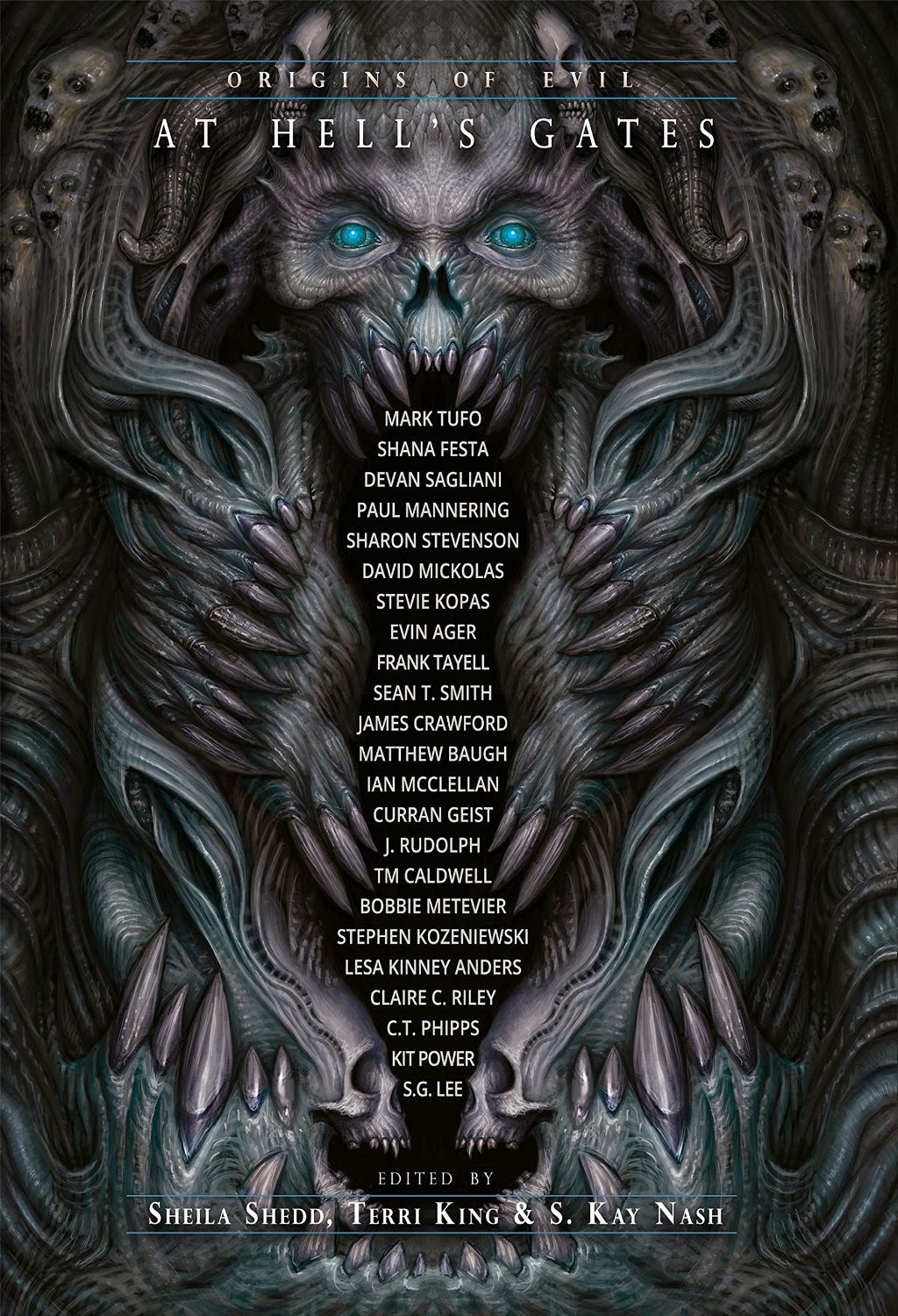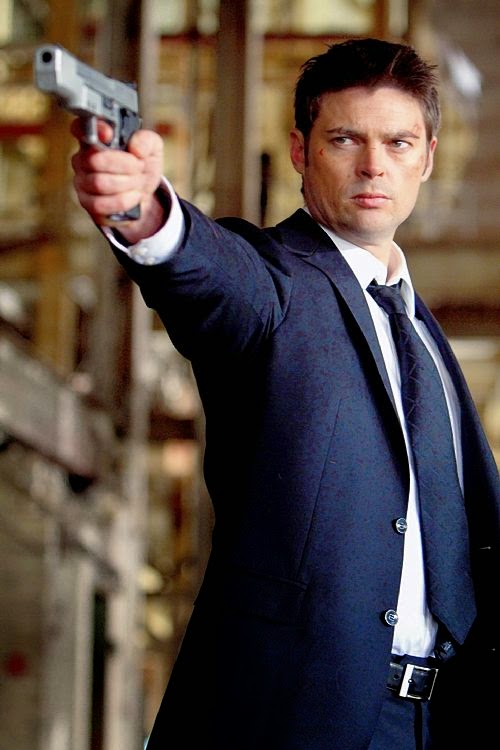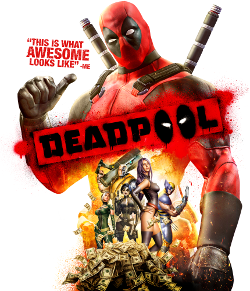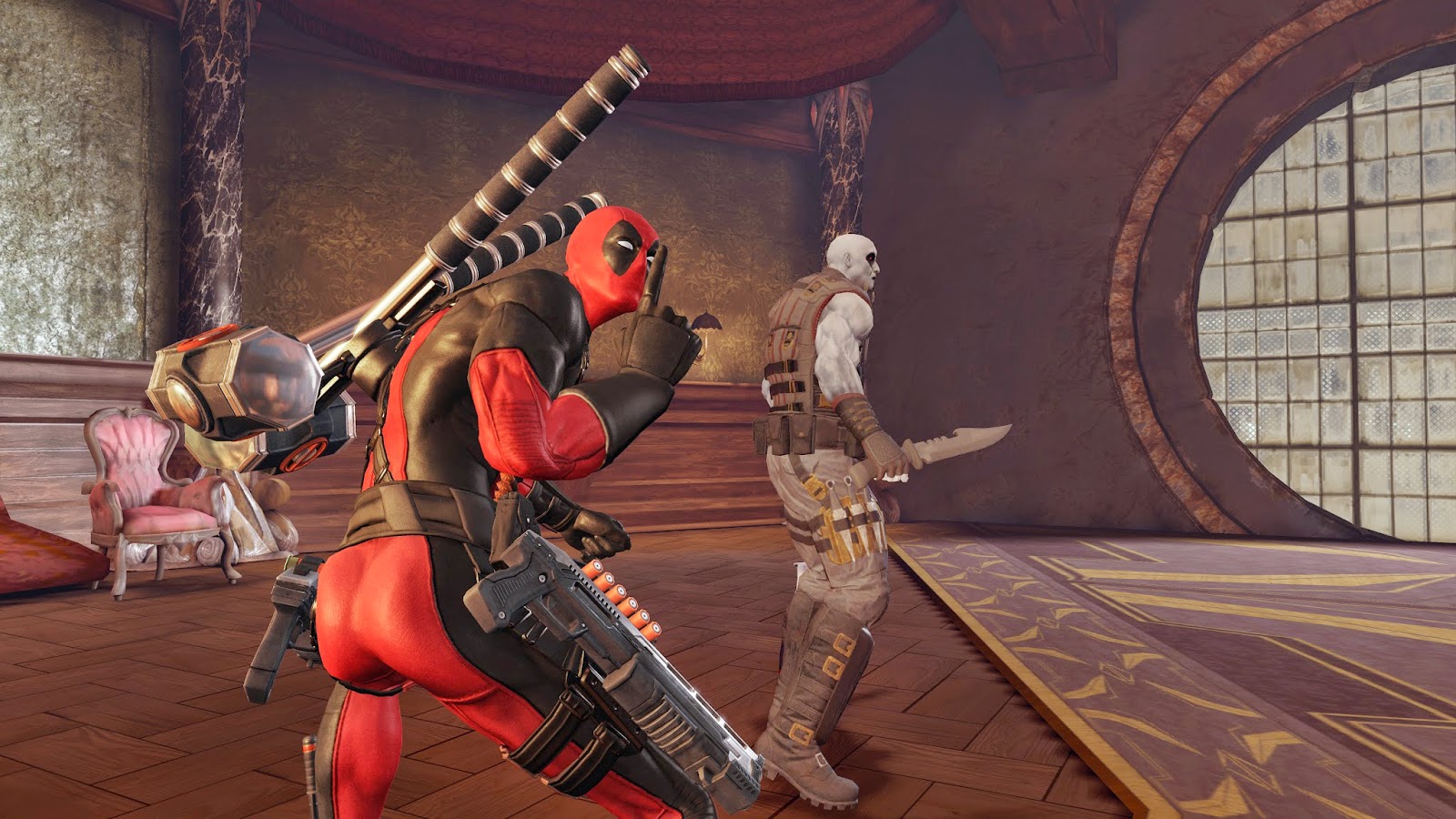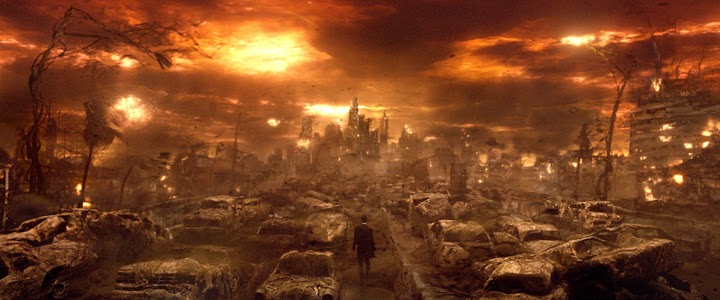Kaiju Rising: Age of Monsters is an anthology by Ragnarok Publications created via Kickstarter. A wildly successful Kickstarter, it attempted to rectify the appalling lack of original Kaiju fiction in the West. As the introduction for the book says, do you know how many books NOT about Godzilla were published in America before this book? Two.
Kaiju Rising provides us twenty-three short stories about a variety of Kaiju ranging from
Pacific Rim types to Godzilla to folklore monsters. So, how are the stories themselves?
Eh, they're hit and miss.
Some of the stories are quite good, managing to encapsulate the fear and power of a giant monster as well as their relationship to man. Basically, the idea humanity is not the most powerful thing on Earth and what it's like to be subject to forces beyond your control. Other stories are incredibly fun and humorous, showing humanity is not helpless against Kaiju as long as they have both courage and a giant robot.
Other stories really made me wish I hadn't read them. These stories tended to either have a curious anti-religious bent which placed humanity directly against God or insulted the belief in him in a world with monsters. Only two of these stories had these as direct themes but they made it feel like the book was taking shots at me. Which is a shame because one of them was really funny. I just wish it hadn't felt like it was laughing at me rather than with me.
The darker stories in the book weren't necessarily bad, though, even if I didn't enjoy them as much as the lighthearted ones. This book makes use of war and the environment as themes, often bringing up human beings having brought down the wrath of the monsters by either misusing the world's resources or attempting to wield them as weapons.
We also get themes of morality as individuals struggle with what they're willing to sacrifice in order to prevent the majority from suffering. The book has no consistent position with the sacrifice of the few often viewed with scorn and derision while, at other times, the only sensible choice. The fact this book was written by a variety of authors with varying opinions on what Kaiju mean, represent, and embody is obvious by the time you finish the book.
I think this variation is the biggest issue and strength with the book simultaneously. This is a book with horror, comedy, depressing tales of tragedy, melodrama, regular drama, and action. Those individuals looking for more upbeat stories of Kaiju punching action will be disappointed while those seeking darker stories will often find their desires interrupted with bold humor.
The fact you never know what you're getting in this book adds a certain element of surprise, though. Whether the protagonists will live, die, or be crippled is very much in the air in this book. I also applaud the author for including illustrations of every Kaiju from the stories at the end of chapters. I wish they'd been at the start of them but, otherwise, I think this is an awesome inclusion for Kaiju fans.
So, should you buy this book? I think if you like Kaiju and horror, this is a good book for you. It's primarily a horror novel rather than a "fun" Kaiju novel and the cover is a bit misleading. Something which showed the Kaiju in its terrible destructive fury would have probably been better. The tone of the book is very dark, on average, and the Kaiju threatening rather than reassuring. Less Power Rangers and more
Cloverfield.
As for my individual story, thoughts?
Big Ben and the End of Pier Shore by James Lovegrove: A story about a boardwalk fairgrounds owner who tries to figure out how to profit from the Kaiju vs. Robot fight going on outside of his door. Not a bad story at all but perhaps not best introductory story to the world. I did develop a swift fondness for the titular robot, though.
The Conversion by David Annadale: This is the only story which made me actually angry, a feeling I haven't received from a piece of media since Bioshock's
Burial at Sea and before that Brian Herbert's
Dune prequels. As a religious person, the story offended me and made me upset I'd read it. Non-religious readers may feel differently about the story but I strongly disliked it.
Day of the Demigods by Peter Stenson: I absolutely loved this story, however. A young Kaiju male wants to impress his girlfriend so he decides to attack the place which will make him the most famous monster of all-time: Hollywood! This short-story is hilarious and fun! It's in contention for the best story of the anthology.
The Lighthouse Keeper of Kurohaka Island by Kane Gilmour: A serious take on a Kaiju attack and, surprisingly, the idea of Godzilla as a protector of humans. The use of Hiroshima and Nagasaki was probably in poor taste but it's still one of the best Kaiju stories I've ever read.
Occupied by Natania Baron: A surreal story which ties the Kaiju to the ancient Nephilim. I found it rather hard to follow in places but the world-building was excellent. It's nice to see someone go somewhere different with the setting.
One Last Round by Nathan Black: A Pacific Rim-esque team of has-been monster fighters lose their chance to be robot pilots. When the mother-of-all Kaiju comes to attack New Orleans, they do their best to go out in style. The ending is a bit of an ass-pull but I think fits tonally with the rest of the story.
The Serpent's Heart by Howard Andrew Jones: An interesting story following a Chinese dragon which has been wrecking ships, a Muslim crew which finds itself shipwrecked by it, and the Pirate Queen which picks them up. It's a much more high-fantasy sort of story than the rest and gets kudos for using non-white non-European protagonists. The ending is an excellent twist too, with a few surprises I didn't see coming.
Monstruo by Mike Maclean: A horrifying tale about the greater good versus the life of a little boy. This is very similar to a classic science fiction dilemma where a child's life is weighed against a cargo ship full of supplies going to a colony world. The ending of this one is depressing but fits with the story's themes.
The Behemoth by Jonathan Wood: A story of a world which requires human sacrifice to get the various terrifying machines which fight against the monsters invading the planet going. The protagonist is distinctly unlikable but that's the point. What does one do to survive? What is one willing to do to sleep well at night?
The Greatest Hunger by Jaym Gates: A story of lust, greed, and wealth which says, as always, humans are the real monsters. I have mixed feelings about this work but it does have some evocative ideas.
Heartland by Shane Berryhill: A story about human sacrifce in the Modern World and how humanity copes with having to deal with monsters which cannot be defeated, but only appeased. I like how people react to this with more hatred and anger than resignation.
Devil's Cap Brawl by Edward M. Erdelac: A combination Western gold rush story and a Kaiju story. Yet another innovative use of the monsters in a non-traditional environment.
Shaktarra by Sean Sherman: A story of an alien world, psychic powers, and science-fiction weirdness in Las Vegas. I was rather fond of this one. The fact our heroes try to be reasonable in an unreasonable situation make them quite likable.
Of Earth, Of the Sky, Of the Sea by Patrick M. Tracy and Paul Genesse: The Imperial Japanese attempt to make use of the Kami in order to fight against the encroaching foreign influence. An environmental parable which isn't preachy but beautiful, a bit like
Princess Mononoke.
The Flight of the Red Monsters by Bonnie Jo Shufflebeam: A story of a man, a monster, and how both of them face their peculiar doom in a world which doesn't care.
Operation Starfish by Peter Rawlik: A woman drowning an anthill in her backyard triggers a veterans memory of a terrible Cold War mission. This is, in my opinion, one of the best "Kaiju" stories in the book.
With Bright Shining Faces by J.C. Koch: A short story about the relationship between young children, giant monsters, and their fantasies of smashing everything. It's a little surreal but very enjoyable.
The Banner of the Bent Cross by Peter Clines: The Nazis have gotten themselves the Argo of Greek Myth and are using it to eradicate the Allied fleet. The Allies thus must recruit sea monsters of myth to smash it. Awesome premise, awesome story.
Fall of Babylon by James Maxey: The Lamb of God fights the Statue of Liberty and somehow it's offensive and boring rather than awesome. That takes skill. I think it has to do with the fact I'm religious, much like how much I disliked the Conversion. It's at least KINDA funny but funny in a tasteless, crass, and mean-spirited sort of way.
Dead Man's Bones by Josh Reynolds: A fairly straight-forward story of a massive undead monster being created by World War I mad scientist in order to win the war. I liked this story a great deal and rooted for the English the whole way.
Stormrise by Eric Hoffman: A very strange environmental story which only introduces its particular Kaiju at the very end. Still, I enjoyed it for one of the best put-downs of the human race I've read in a very long time.
Big Dog by Timothy W. Long: An alternate history story of a world where World War 2 was interrupted by the arrival of Kaiju. A Nazi, a woman who hates him, and a gigantic tank struggle to deal with one of them. Not bad at all.
The Great Sea Beast by Larry Correia: A version of Captain Ahab's journey with a samurai warrior and a kaiju. The ending was a surprising twist and I'm glad it ended the way it did. I liked the main characters and, again, another non-white non-European or American protagonist.
Animikii vs. Mishipeshu by C.L. Werner: Another environmental parable which doesn't end well for humanity. Very well written destruction.
The Turn of the Card by James Swallow: Kaiju attack London and humans try to understand them. Another twist ending which I really liked.
7.5/10




